Preparedness
7 Essential Skills for Self-Reliance in Today’s World
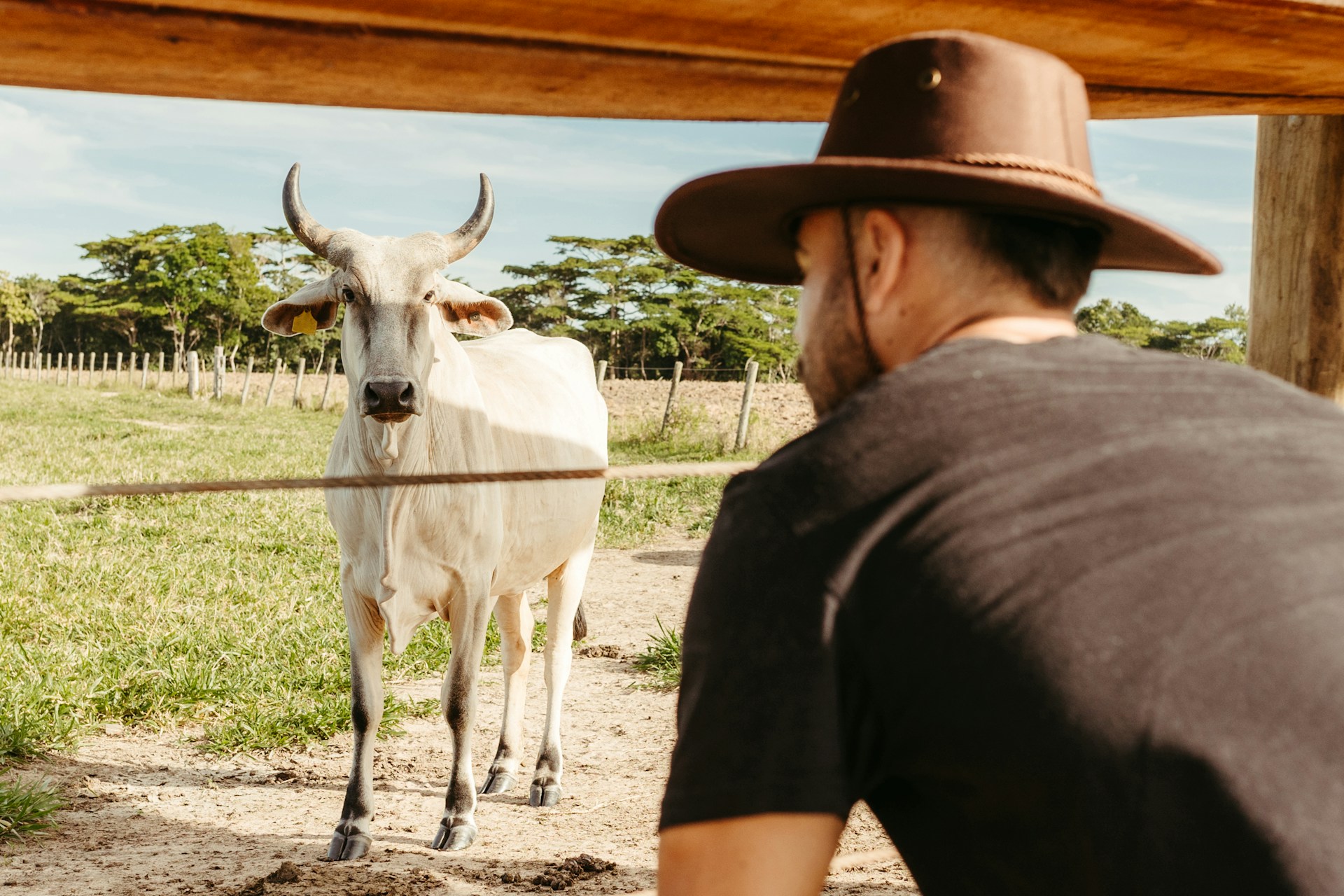
In today’s fast-paced world, the concept of “preparedness” often conjures images of stockpiling food and weapons. However, true preparedness is about more than just hoarding supplies—it’s about equipping yourself with a diverse set of life-sustaining skills. Our grandparents had a wealth of knowledge about self-reliance, from cooking and gardening to sewing and carpentry. In an age where convenience often trumps self-sufficiency, these skills are more valuable than ever. Here’s a list of essential skills to consider learning, ensuring you’re ready for whatever life throws your way.
1. Mastering the Art of Cooking from Scratch
In a world where dining out and pre-packaged meals are the norm, the ability to cook from scratch is a vital skill for self-reliance. Understanding how to prepare a meal using basic ingredients not only enhances your emergency food storage strategy but also connects you to the roots of culinary tradition. Surprisingly, many young people today struggle with even the simplest dishes. Reclaiming this skill is crucial for anyone serious about preparedness.
2. Developing Healthcare Skills for Self-Care
Our dependency on doctors and pharmaceuticals has grown significantly, but knowing how to care for minor ailments at home is invaluable. In the past, people managed their health without constant medical intervention. Learning basic healthcare skills can reduce your reliance on high-powered medications and frequent doctor visits, empowering you to handle everyday health issues naturally and effectively.
3. Cultivating Growing and Foraging Skills
Imagine a scenario where store shelves are empty, and you must rely on your own resources. Growing your own food and foraging for wild edibles are critical skills in such situations. Gardening is more than just planting seeds; it requires knowledge and physical endurance. Similarly, foraging demands an understanding of which wild plants are safe to eat. These skills provide a crucial safety net in uncertain times.
4. Acquiring Sewing Skills for Clothing and Repairs
When shopping for clothes is no longer an option, knowing how to sew can be a lifesaver. This skill extends beyond making and repairing clothing; it includes creating quilts, blankets, and custom items. Additionally, related skills like spinning, weaving, knitting, and crocheting offer opportunities for barter and self-sufficiency, making sewing a versatile and valuable skill.
5. Gaining Livestock Handling Skills
Working with livestock is not as simple as it seems. Even handling chickens can be hazardous without proper knowledge. Learning how to safely manage animals and provide basic veterinary care ensures your livestock remain healthy and productive, whether they provide meat, dairy, or fiber. These skills are essential for anyone looking to maintain a sustainable homestead.
6. Learning Hunting, Trapping, and Butchering
If your family consumes meat, knowing how to hunt, trap, and butcher is essential. These skills allow you to procure meat without relying on grocery stores. Understanding the various hunting methods and knowing how to properly butcher an animal ensures you maximize the meat’s utility and safety for consumption. This knowledge is fundamental for providing sustenance in challenging times.
7. Building Carpentry and Construction Skills
While you may not need to construct an entire house, the ability to build a small shed or repair simple structures is incredibly useful. Carpentry skills extend to basic home repairs, enhancing your ability to maintain and improve your living conditions independently. These skills not only increase your self-reliance but also add to the overall resilience of your household.
In conclusion, the path to true preparedness lies in acquiring a diverse set of practical skills. While this list is not exhaustive, it serves as a starting point for assessing your current abilities and identifying areas for growth. Whether you choose to learn through community classes or online resources, the key is to keep expanding your skills and knowledge. Embrace the challenge of self-reliance, and you’ll be better equipped to face whatever the future holds.
Let us know what you think, please share your thoughts in the comments below.

Preparedness
Survival in a Changing America: Why Preparedness Matters More Than Ever
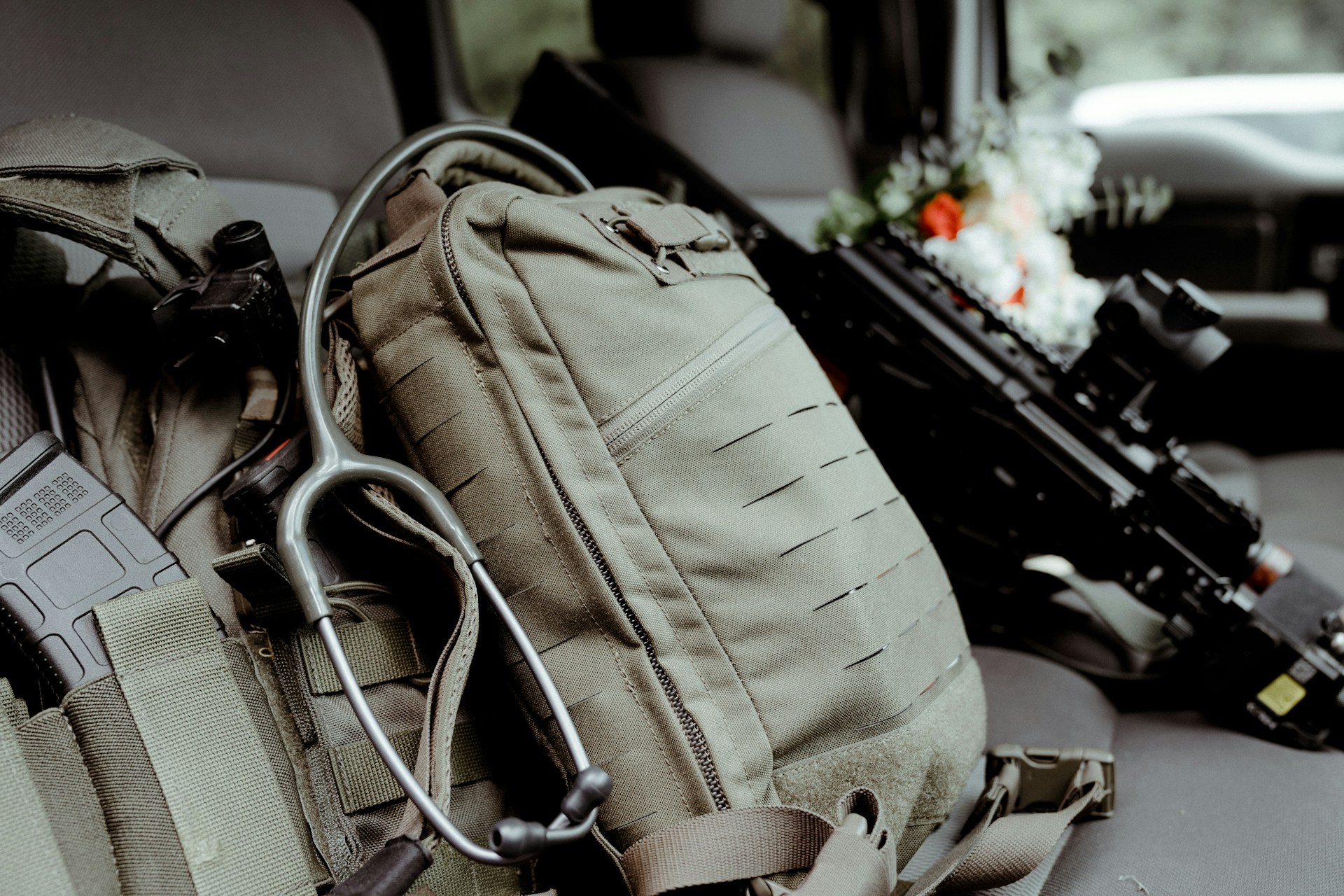
Survival isn’t just about wilderness skills or stockpiling food. In today’s America, survival means being ready — financially, mentally, and physically — for rapid change. Under President Trump’s current term, the country is moving fast. Supporters see decisive leadership, tougher borders, economic nationalism, and a renewed focus on American strength. But with that speed comes disruption, resistance, and uncertainty. That’s where personal preparedness comes in.
President Trump has made it clear he believes in self-reliance, national security, and strength over dependence. Those same principles apply at the household level. Whether it’s supply chain pressure, political unrest, inflation, or grid stress, Americans who prepare are simply harder to shake.
1. Control What You Can Control
Trump’s presidency has emphasized America first — but that mindset starts at home. You may not control Congress, global markets, or activist judges, but you can control your food, water, cash reserves, and personal security. A prepared household is less vulnerable to sudden price spikes, shortages, or emergencies caused by political or economic battles in Washington.
Stocking basic food, having backup power, and keeping cash on hand isn’t paranoia — it’s responsibility.
2. Supply Chains Are Still Fragile
Despite economic growth claims and lower energy prices in some areas, grocery costs and essentials remain unpredictable. Trump’s push for tariffs and reshoring manufacturing is aimed at long-term strength, but transitions aren’t painless. Short-term disruptions happen before long-term gains materialize.
Smart Americans don’t wait for headlines to confirm trouble. They quietly build buffers: extra food, household necessities, and alternative sourcing.
3. Civil Unrest Isn’t Going Away
Trump’s presidency continues to expose deep political divides. Protests, counter-protests, and aggressive rhetoric aren’t disappearing — they’re becoming normalized. Survival today means knowing how to avoid trouble, not chase it.
Situational awareness, safe travel habits, and basic home security upgrades matter more now than they did a decade ago. Strong borders don’t eliminate internal instability overnight.
4. Medical and Personal Readiness Matter
Government systems get stressed during shutdowns, disasters, or mass events. Trump often criticizes bloated bureaucracy for a reason — it moves slowly when speed matters. Having basic medical supplies, prescriptions, and personal health plans ensures you don’t depend entirely on institutions that may lag when demand spikes.
Preparedness is independence.
5. Survival Is a Mindset, Not Fear
Trump supporters are often labeled “fearful,” yet preparedness is the opposite of fear. It’s confidence. It’s knowing that no matter what happens — politically, economically, or socially — your family is stable.
The core Trump message has always been strength, resilience, and refusing to be weak or dependent. Survival thinking aligns perfectly with that philosophy.
America is changing. Fast leadership brings fast reactions. The prepared citizen doesn’t panic, protest, or plead — they adapt.
Survival today isn’t about hiding from the future. It’s about being ready to face it head-on.
Preparedness
How U.S. Citizens Should Stay Safe When Traveling Abroad

Traveling internationally can be rewarding, but it also carries risks that vary widely by destination and situation. The U.S. government offers specific safety guidelines to help American travelers prepare, stay informed, and protect themselves throughout their trip.
Here are key practices U.S. citizens should follow to stay safe overseas:
1. Check Travel Advisories Before You Go
The U.S. Department of State issues travel advisories for every country. These advisories use a four-level system to show risk:
- Level 1: Exercise normal precautions
- Level 2: Exercise increased caution
- Level 3: Reconsider travel
- Level 4: Do not travel
Before booking or departing, always review the current advisory for your destination. Higher levels indicate serious risks like crime, civil unrest, terrorism, health emergencies, or limited emergency services.
2. Enroll in the Smart Traveler Enrollment Program (STEP)
Before departure, sign up for the Smart Traveler Enrollment Program (STEP). This free service connects you to the nearest U.S. embassy or consulate and keeps you informed with real-time updates about safety, weather, civil unrest, or health issues in your destination. It also makes it easier for authorities to contact you or your emergency contacts if needed.
3. Know Local Laws and Customs
U.S. citizens abroad must obey the laws of the country they are visiting. Local legal systems and penalties can differ significantly from those in the United States. Travelers should research local laws, dress codes, cultural norms, and any restricted activities before departure to avoid fines, detention, or legal complications.
4. Prepare Important Documents and Contacts
Carry your passport with you at all times and make digital copies of important documents like your passport page, travel insurance, and emergency contacts. Leave copies with someone at home and store them securely online. Keep local embassy contact information readily available in case you need assistance while abroad.
5. Have a Personal Emergency Plan
Emergencies can range from civil unrest and natural disasters to health crises and lost travel documents. Plan ahead:
- Know where the U.S. embassy or consulate is in your destination
- Have a communication plan with family or friends back home
- Know your travel insurance coverage and how to access medical care while abroad
- Understand evacuation routes and local emergency services
During a crisis, the U.S. government may not be able to evacuate you immediately. You should be ready to use commercial travel options to leave if it is safe to do so.
6. Stay Alert and Use Common Sense
Travel safety often comes down to ordinary precautions:
- Avoid risky areas and follow local authority instructions
- Keep a low profile and avoid displaying expensive items
- Be aware of your surroundings, especially in crowded or unfamiliar places
These practices reduce the chance of being targeted for theft or other crimes.
Why This Matters Today
Global travel risks can change quickly due to political tensions, health outbreaks, or civil unrest. For example, the U.S. government has issued worldwide travel caution alerts during periods of heightened international tension, underscoring the importance of staying updated with current risks.
Summary of Key Safety Steps
- Check official travel advisories for your destination
- Enroll in the Smart Traveler Enrollment Program (STEP)
- Know local laws and customs
- Carry and secure important travel documents
- Prepare a personal emergency plan
- Stay alert and cautious throughout your trip
Preparedness
5 Things You Need to Travel Across America Safely and Legally

Traveling across the United States is one of the great freedoms Americans enjoy. Whether you’re driving state to state, flying cross-country, or taking a long road trip, staying safe and fully within the law doesn’t require anything complicated. It just takes preparation, awareness, and a few essentials that every traveler should have in place before they go.
Here are five things you need to travel across America confidently, safely, and legally.
1. Valid Government-Issued Identification
This is non-negotiable.
A valid ID proves who you are and allows you to travel without unnecessary delays or problems.
For most people, this means:
- A valid driver’s license or REAL ID
- A state-issued ID card if you don’t drive
- A valid U.S. passport (especially useful for air travel)
If you’re flying, your ID must meet TSA requirements. If you’re driving, your license must be current and not suspended. Keep your ID easily accessible, but secure.
2. Proof of Legal Residency or Citizenship (If Applicable)
If you are a U.S. citizen, carrying proof such as a passport or passport card adds an extra layer of security during long trips, especially near border states or when flying.
If you are a legal resident or visa holder, you should always carry:
- Your valid visa or green card
- Any required travel documents associated with your status
Having proper documentation protects you from misunderstandings and unnecessary stress.
3. Proper Vehicle Documents (If Driving)
If you’re traveling by car, make sure your paperwork is up to date.
This includes:
- Vehicle registration
- Proof of insurance
- A valid driver’s license
Law enforcement checks are routine and usually brief when paperwork is in order. Keeping documents organized shows responsibility and helps everything go smoothly.
4. A Safe and Legal Travel Plan
You don’t need a strict itinerary, but you should know where you’re going and how you’ll get there.
A smart travel plan includes:
- Knowing your route and major stops
- Booking legal accommodations (hotels, campgrounds, or rentals)
- Understanding basic state laws (speed limits, phone use, toll roads)
Each state has its own rules, and being aware of them helps you avoid fines or problems.
5. Emergency Contacts and Communication
Safety isn’t just about laws — it’s about preparedness.
Carry a charged phone, a car charger or power bank, and a written list of emergency contacts in case technology fails.
It’s also wise to:
- Share your travel plans with someone you trust
- Check weather conditions regularly
- Keep emergency numbers saved and written down
Prepared travelers are calm travelers.
Final Thought
Traveling across America legally and safely doesn’t require fear or special permissions. It requires valid identification, proper documents, respect for local laws, and basic preparedness.
When you travel with everything in order, you’re free to enjoy the journey — not worry about it.
-
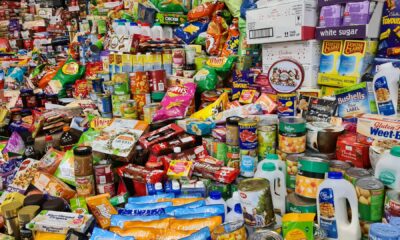
 Off The Grid4 months ago
Off The Grid4 months ago10 Foods That Could Save Your Life When Grocery Shelves Are Empty
-
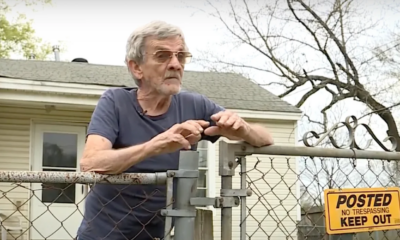
 Tactical2 years ago
Tactical2 years ago70-Year-Old Fends Off Intruder with Lead-Powered Message
-
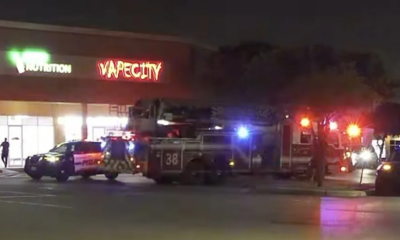
 Tactical2 years ago
Tactical2 years agoVape Shop Employee Confronts Armed Crooks, Sends Them Running
-

 Preparedness4 months ago
Preparedness4 months ago5 Things You Should Always Carry During a Winter Storm
-

 Nature and Wildlife4 months ago
Nature and Wildlife4 months ago10 Survival Skills You Should Learn Before You Need Them
-

 Preparedness2 years ago
Preparedness2 years agoEx-Ballerina’s Guilty Verdict Sends Tremors Through Gun-Owner Community
-
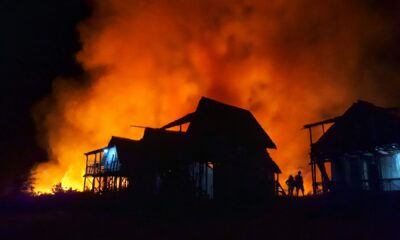
 Preparedness4 months ago
Preparedness4 months agoSmart Person’s Checklist: 10 Things You’ll Wish You Had When Disaster Strikes
-
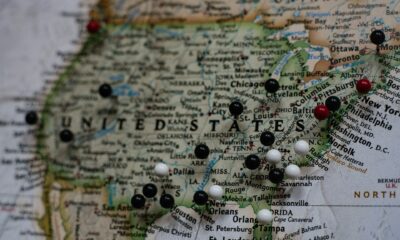
 Preparedness9 months ago
Preparedness9 months agoDiscover Free Land in These Three Surprising States